Why Catholic Teachers Need To Teach About Sacrifice
Do you have concerns about the way that social media might be shaping the lives of the students you work with each day. An emerging culture of pure consumption and self-absorption is creating an ongoing surge of mental health and relationship problems across the planet. In today’s episode I want to talk with you about how the life of Jesus can offer a powerful thesis for helping young people grow into more healthy and hopeful adults. I want to share with you a great quote from Sebastian Junger’s latest book that can help us all reflect on a simple and powerful way to change our way of life.
Author
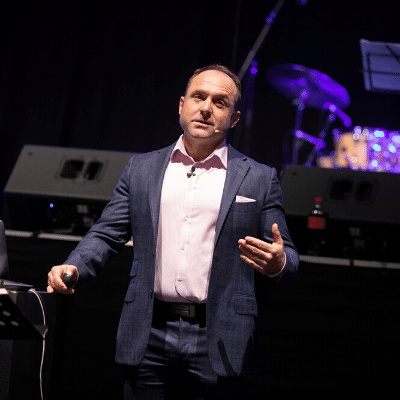
Jonathan Doyle
Jonathan Doyle is an international speaker, author, businessman and executive coach who has spoken around the world to more than 400,000 people on topics related to personal development, peak performance, leadership, Catholic school evangelisation, relationships and much more.
His recent keynote addresses include the NCEA National Convention in St. Louis Missouri to 10,000 delegates and he is a frequent keynote speaker in the US, Asia and Europe.
He is also the founder of an influential education and media business that delivers training content to hundreds of organisations and thousands of individuals around the world on a weekly basis.
Jonathan holds an undergraduate degree in education from the University of Canberra, a Masters Degree in Leadership and Management from the University of Newcastle and has also undertaken post-graduate study in philosophical anthropology.
He is the author of numerous books on relationships and peak performance and each day shares these same ideas with a large global audience via The Daily Podcast with Jonathan Doyle.
Finishing Strong is a loud and clear call for every young person to make the very best of their final years of school. Based on hundreds of seminars around the world to a huge number of students Jonathan Doyle offers powerful, practical advice that can make a major difference.
Each chapter offers inspiring stories, clear principles and actionable steps for identifying and moving forward in study, life, friendships and each key area of life.
Jonathan also includes journal questions and guided reflections at the end of each chapter to maximise learning and ensure the ideas and principles can be made real, personal and achievable.
If you want to help your child or students make the very best of their final years of high school then it;s time to help them finish strong!
10,000 Teachers Have This Book Already!
How can we help teachers avoid burnout, cynicism and exhaustion?
How can the Catholic teacher live their vocation more fully, share the faith with young people and a make a difference in the world?
Over the last two decades, Jonathan Doyle has reached hundreds of thousands of Catholic teachers and leaders around the world with a message of hope and encouragement.
In Tools and Fuels, Jonathan offers a compelling vision of what Catholic schools can be in the 21st century and practical and inspiring strategies about the way each Catholic teacher can play their part in living their vocation, reaching young people and saving the world.
Find out more HERE
TRANSCRIPT
Catholic Daily Feb 16 2021
Why Catholic Teachers Need To Teach About Sacrifice
📍 Hey everybody. Jonathan Doyle with you. Once again. Welcome aboard friends to the Catholic teacher daily podcast. Hope you’re doing. Okay. Thanks for all that you’re doing each day. And always remember that the smallest things. That single word of encouragement, that one. Moment of affirmation can just have such a profound effect on the life.
Of each young person that God has placed in your way. Let’s talk friends. I want to talk about a beautiful quote. That I came across in Sebastian Junger, latest book. You may be familiar with Sebastian younger and think I’m pronouncing it correctly. It’s spelled J U N G E R. Sebastian younger is a very famous journalist and author. He wrote books like the perfect storm.
Which made me never want to get into a boat again, ever anywhere. He wrote a book called war. Which led to a film called Restrepo, which I watched as well. So I’ve enjoyed his books over the years. He’s a very gifted journalist. So his prose. Is very tight, so very readable and his new book tribe.
Is very short. It’s only , let me go get it in front of me here. It’s about a hundred and it’s even less. You got a lot of notes in here. It’s about 136 pages. That’s all. And , just excellent. And it’s really about this concept of evolutionary biology and evolutionary psychology. These are topics that I’ve had a great interest in.
I just finished my other podcast this morning that I do , the daily podcast with Jonathan Doyle. If you wanna check that out. When I talked about. These themes that have, been in my thinking for many years. And if you’re not familiar with it, look evolutionary biology and evolutionary psychology posits. These thesis that we have evolved in particular ways, too.
Accentuate and maximize particular behaviors. So just as our bodies and physiologies have adapted and changed. To , I guess geographic norms and all sorts of changes in our environment. So has our brains and our prefrontal cortex is. So the core thing to think about is that as a species we’ve really evolved for a corporation.
For ultra wisdom. And for the tribe for the group , put it this way with a planet is 3.6 billion years old hominids have been around for several million in our current form, but we’ve been homosapien sapiens for only about 350,000 years. So the brains and the bodies that we have now, A relatively new.
And we’ve only really been in any kind of civilization for less than 10,000 years. So ancient Egypt was only, 5,000 years ago. What I’m getting at here is that our brains. It’s a relatively new experiment for us to live socially. But what we’ve discovered is that we did evolve. And we survived by group cohesion by cooperation by service.
Bye. Sublimating the needs of the individual towards the needs of the group, because those sorts of behaviors led to tribal survival. So all of that is an introduction to this quote that I want to share with you from Sebastian younger and why I think it relates to Catholic education and what you’re doing every day. And here it is.
It’s on page 18 in the introduction. And he says this very simple. How do you become an adult? In a society that doesn’t ask for sacrifice. How do you become an adult in a society that doesn’t. Ask for sacrifice. What he’s getting at here is that for tribal cultures, you became a member, an adult member of the tribe. When.
You became a member of the tribe when you could make what a meaningful contribution. To the survival and daily life of the tribe. Please don’t be offended by this, but basically the facts are what they are and that’s that, male members of the tribe tend to do prove their belonging by war and by hunting.
So guys would get up every day and go and risk it and ripped apart by something or fighting the other tribe. And once the tribe recognized that they could make this contribution, they were accepted as full members of the tribe. So they’re belonging. Was related to contribution. And then of course, the female members of the tribe that took different forms usually, but both for males and females.
Membership and adult hood came as a result of sublimating personal interests and personal drives towards the greater good. So that’s why he says, especially in younger is positing this question about our culture at the moment. How do you become an adult? In this culture, which he suggests, and I think I agree. Doesn’t ask for sacrifice.
If you look at the lives of our students, They’re built very much around, I would say concepts of consumption and this affects all of us, but for young people consumption. Self-promotion. And so belonging comes from. Ironically from a kind of belonging for, from likes and social media followers.
But I want to ask you this question. See if you agree or disagree. Where does our culture ask really any of us to sacrifice now, if you’re a parent , it comes with the turf, right? But as I said in the other, my other podcast, even then you can limit your level of contribution. You can be an amazingly awesome parent and give 2000000000%.
Or you can not. But for a culture in general, isn’t it a great question. How are we asked to sacrifice? And I’m not sure that we are. And if you look at our politics and our. New cycle. There’s this constant sense of fragmentation of adversarial politics. And. So we’re at a really interesting inflection point. And I think what I want to offer you today is one of the great genius aspects of Catholicism and the Christian proposition.
Is that here’s the way to think about it. Where I live in our cathedral. We go to the eight o’clock mass and , on Sunday mornings. And it’s not one of the world’s most beautiful cathedrals. It’s not, I’ve seen them worse. Trust me with my travels. I’ve seen some things. I’m like, Whoa. Yeah. Architect at a bad night on some funny mushrooms, but anyway , my cathedral is not terrible.
But there’s a beautiful central crucifix above the altar. And it’s a classical style crucifix. It’s enormous. It’s huge. But I love praying in there and I find myself driven to contemplation. And I simply look at it. And the more that I’ve looked at it over recent months and years, It’s just that the central proposition of the Christian faith.
His sacrifice. That. Christ came to do the will of the father. And the will of the father was that he would lay down his life as a ransom for many. So we can get all fancy about Christianity and Jesus was always getting frustrated with the Pharisees because they took that idea of God’s love and presence and turns it into washing pots and bowls correctly, which had their place.
Even just as an aside, there’s a reason that those things were in the mosaic law because it increased hygiene and people didn’t tend to die of food poisoning and stuff as frequently as other nations around them because the Jews had all these particular prohibitions and rules that actually allowed them to flourish.
But Jesus’ point was that they’ve made those laws, the main event. Whereas the main event was God in his sovereign love for his people. And then we come into the new Testament. And he’s frustrated because he’s He is frustrated with the Pharisees because they haven’t got it yet. But then you look at the life and the mission and the death and the resurrection of Christ. And what’s the central motif.
That God. The author of the cosmos, the alpha, the Omega, the only we know is that Aristotle and Aquinas would say the only necessary being. Is. Given over in pure sacrifice.
So what this means, I’m just pointing to what I would say is a disjunct between ontology, which is the essence of our being. So we made follow this through from Genesis, were made in the Margo day were made in the image of God. And if that’s true. Yes. We’re sinners in a post-lab Syrian world, but.
We still carry that aspect of God’s image. And then. We live in a culture. That’s doing the exact opposite of sacrifice. It’s a culture of consumption and self promotion. So here in lies the tension. And as I said in today’s email the tension and the mission field. So let’s wrap up. I think that well,
Here’s another thing quickly last night as a family and my kids , 13, 12, and 11. It’s a busy few years. We watched that film, the social dilemma. Many of you will have seen it. If you haven’t seen a police said it’s a very important film and it’s really worth watching. That’s the social dilemma. And.
And or dilemma. And that movies is great because it’s basically showing that. There is an enormous social project going on. With enormously powerful computers. Kind of hijacking. Aspects of how we’ve been created or how our brains have evolved. But again, the critique is that so much of social media is about this self absorption. Self-promotion.
It’s not a place people go to for sacrifice and altruism too often. Is that, I know we all say we’ve seen some nice things on there, As a general thing. It’s, we’re not going to look back at this and say, this was a brilliant moment necessarily in human technological history.
Despite the obvious benefits of technology and other areas. So let’s wrap up. I’m going to suggest to you that you have an opportunity each day. To do what I simply call tell the truth. When you present Christ and particularly when mentioned that if you helped young people would just contemplate the cross.
And then you began, whether you’re in leadership in a Catholic school, you’re teaching, whatever you began to try and incorporate that concept of sacrifice. Into their lives to teach it. To teach it. And not just teach it academically, but then help them understand the importance of grace and sacrament that give us the power to actually live it out.
Because sacrifice is a good idea. If you were just being purely rationally, you’d say , look, we evolved to sacrifice their full let’s. Keep doing it. And everybody stood sacrifice more. The question is why don’t we. Because. We’re sinners. And because of brokenness and sin.
So the beauty and the genius of the Catholic sacramental proposition is that it reminds us that we need something. Beyond ourselves to be able to live fully the truth of our ontological being I’m throwing some big words around today. So friends. In this you’ve been called to exactly where you are. If you hear my voice today, it’s not an accident wherever your teaching’s not an accident. If it is, then God’s not in control of the universe.
Now, I’m not talking about a deterministic universe. I’m talking about. God gives us free will, but unbelieving that where you’re teaching is where you’re meant to be right now that might change at some point, but that’s where you are now. So your chance, your opportunity is to teach the truth. About sacrifice. So yes, you teach about Christ and you help them to pray and to contemplate and to engage with the sacraments, but then you teach it practically.
Helping them to sacrifice by letting other people go through a door first store, help them to sacrifice by helping another student with something. Yeah, I’ve seen some great school cultures without happens with, as a culture of service, a culture of service, a culture of sacrifice. And really if you’re hearing my voice and you’re in leadership , sorry, friends y’all saying is true that the fish rots from the head down.
So really the invitation to leadership Pope Benedict used to say this, that. The concept of hierarchy in the Catholic church, which gets a lot of bad press. He said, it’s a hierarchy of service. There’s a reason that the Roman pontiff is called the servant of the servants of God. You are only, you only get the gig is.
As the Pope. Theoretically. If you’re ready to serve everybody. And again, we’ve got Jesus right. Doing what? Washing the feet. Washing the feet, the job that in Hebrew culture was left to who usually does slaves. Slaves washed the feet. Of guests. And you could see Peter was scandalized. Cause he was like, yeah, why should my feet, what are you doing?
But Jesus was teaching about sacrifice. He was teaching about selflessness, but he was doing it practically. So if you’re in leadership in a Catholic school, your job is to be the chief sacrifice. Okay. I’m just making this up as I go now, but it sounded pretty good to me. Imagine if. The Archbishop in your archdiocese was the chief sacrifice. The one who put others first.
Or if the principal and it just follows all the way down, to the lady in the canteen or the lunch line or the man working in the canteen or the man working in the lunch line. The janitor. The lady working on the grounds, the man working on the grounds. Whoever is part of that Catholic school community gets to sacrifice, but let’s get some leadership in place. Let’s get a principal’s doing it. Huh?
Let’s get me doing it today. My kids get home from school. Alright, God bless you, friends. He’s that quote, one more time. How do you become an adult in a society that doesn’t ask for 📍 sacrifice? Jesus has positioned you today to be in that classroom to help young people understand the crucial nature sacrifice. That’s all I have for you.
Do me a favor, please make sure you have subscribed wherever you’re listening to this. Wherever podcasts you’re on. It’s on, it should be on every podcast player hit subscribe for me, make sure you’re getting the daily podcast. Would you leave a review? If you could think if you’ve got time right now, just jump across to Spotify, to Apple, to Google podcast, wherever it is. And just leave a review saying everybody listened to this sacrifice some time.
I, everything else is on the website. One Catholic teacher.com one Catholic teacher.com. Do you wanna email me? Jonathan, J O N a T H a N. Jonathan, at one Catholic teacher.com. It’s one O N E. Shoot me some questions. Let me know how it can be a blessing to you. In some way in your precious work as a catholic educator, God bless you Jesus. To pray for every teacher listening right now. Holy spirit bless them. Bless their families, help us all to go closer to your goodbyes to everybody my name’s jonathan doyle this has been the catholic teacher daily podcast and i’ll have another message for you tomorrow
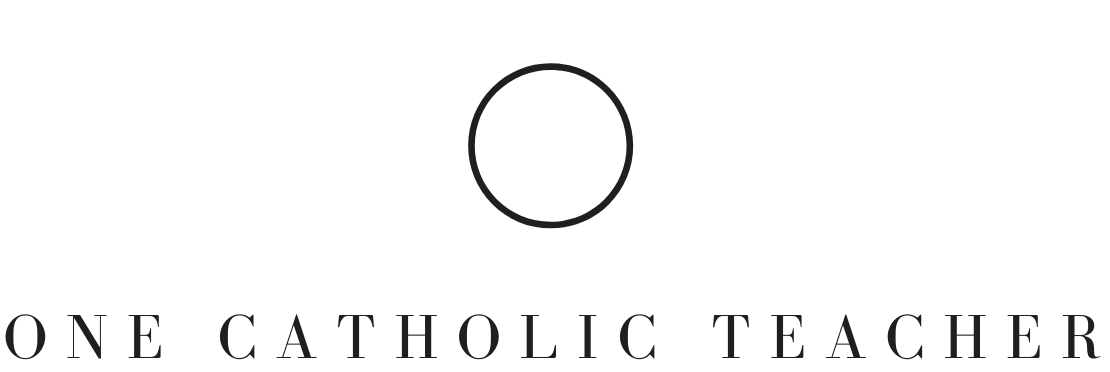
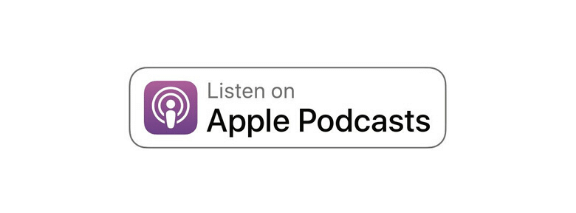

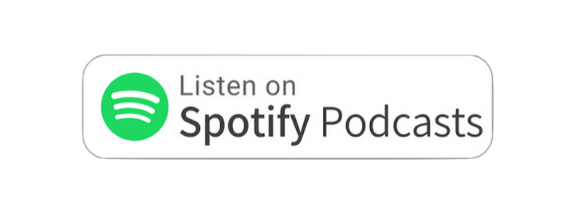
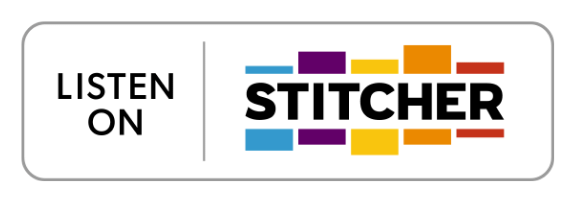
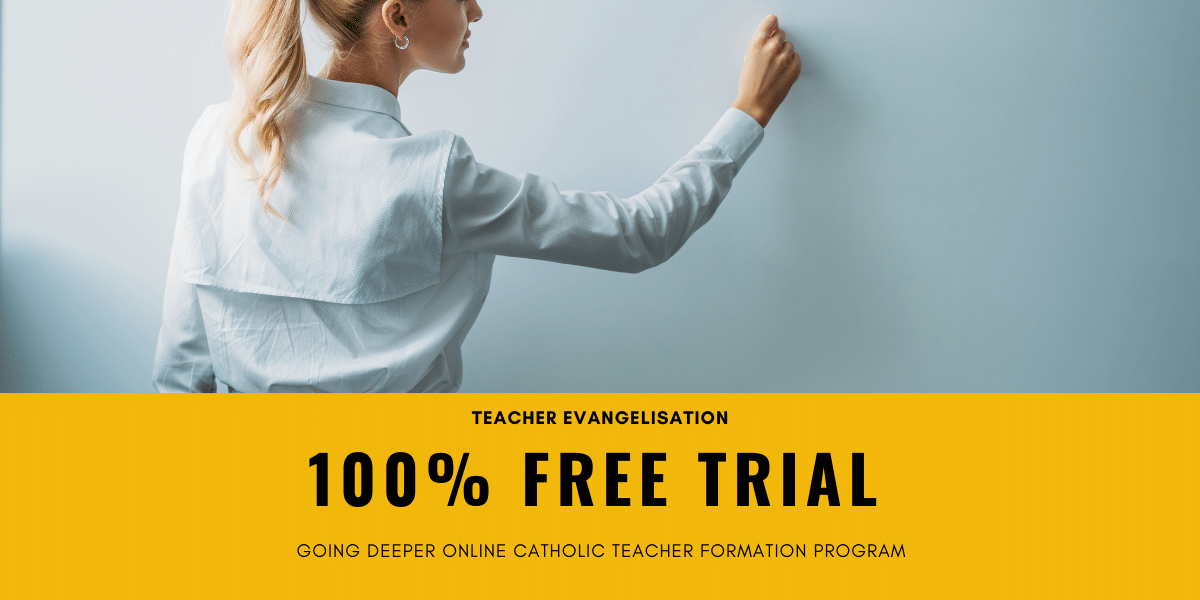
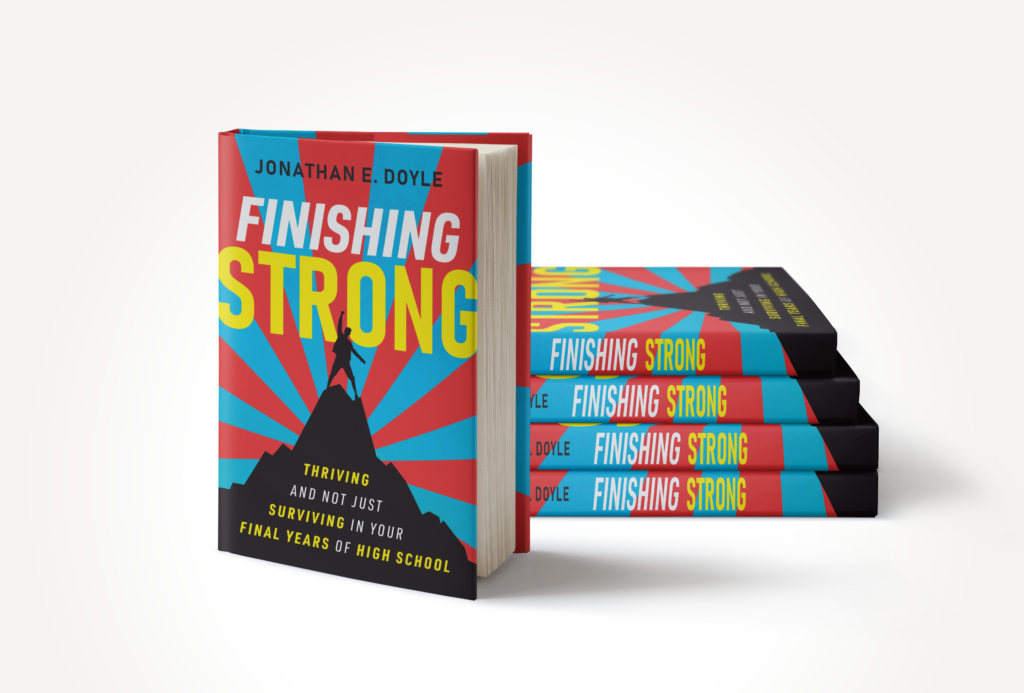





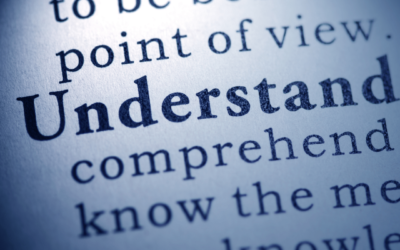

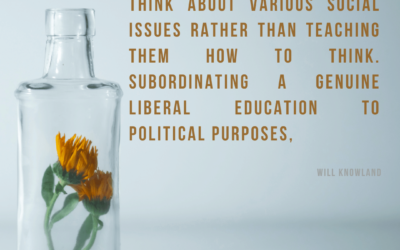


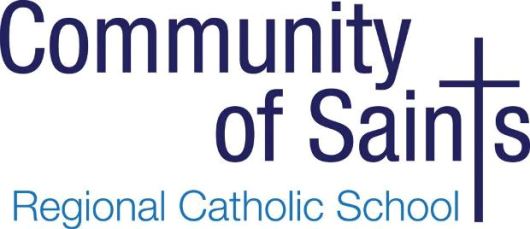

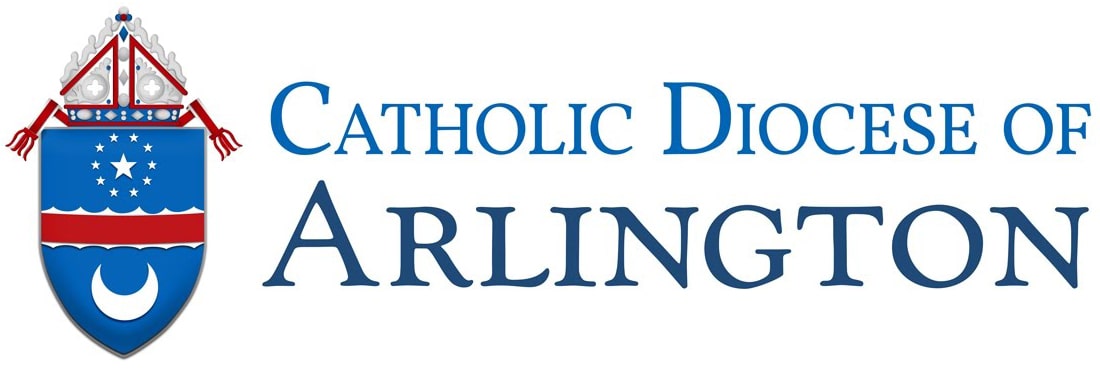
0 Comments